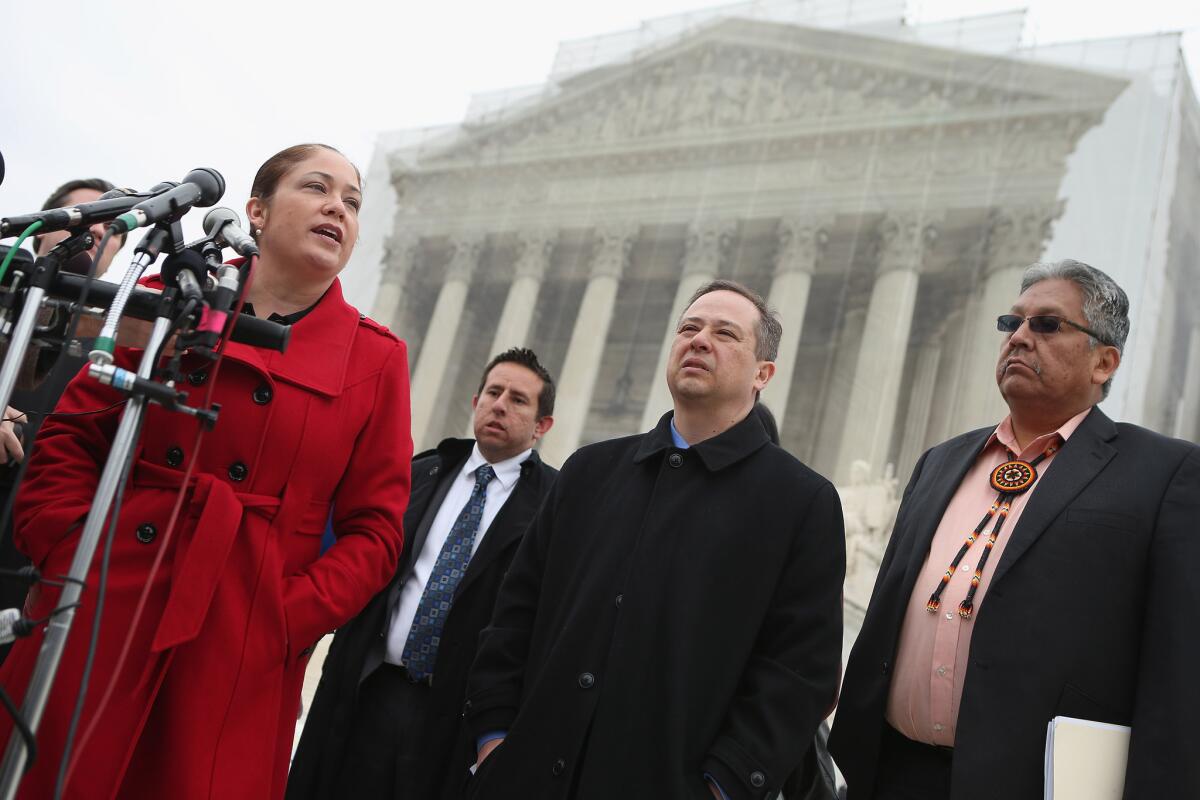Arizona voting law disenfranchises citizens

- Share via
It’s a familiar story: Out of an exaggerated concern about potential election fraud, a state adopts procedures that have the effect of disenfranchising perfectly qualified voters. In this case, the state of Arizona is demanding that would-be voters provide proof of citizenship beyond what Congress has required. The Supreme Court, which heard arguments about Arizona’s policy on Monday, should strike the requirement down.
In 1993, Congress enacted the National Voter Registration Act, popularly known as the “motor voter” law because, among other provisions, it allows citizens to register to vote when they apply for a driver’s license. Congress was clear about its objective: “to establish procedures that will increase the number of eligible citizens who register to vote in elections for federal office.”
Under the law, a citizen can register to vote by mailing to state election officials a form on which the applicant states, under penalty of perjury, that he or she is a U.S. citizen. The federal agency that prepares the form also tells prospective voters what information is required by particular states. Would-be voters in Arizona, for example, are informed that they must include the number of their driver’s license or other state ID or, if they lack those documents, the last four digits of their Social Security number. But if the applicant doesn’t have a state ID or a Social Security number, he or she
writes “None” on the form and the state assigns an ID number. For that subgroup of applicants no further proof of citizenship is required.
As it did with immigration, Arizona decided to “improve” on Congress’ work. In 2004 the state’s voters approved a measure requiring that those seeking to register to vote provide evidence of citizenship. According to the Mexican American Legal Defense and Educational Fund, which has led the challenge to the initiative, 31,000 would-be voters — most of them apparently citizens — subsequently had registration applications rejected. Among those rejected were people with driver’s licenses issued before 1996 and naturalized citizens who were listed as “foreigners” on a database.
This law should never have been passed in the first place because, as the U.S. 9th Circuit Court of Appeals concluded, “Arizona has not provided persuasive evidence that voter fraud in registration procedures is a significant problem in Arizona.” But that isn’t the issue before the Supreme Court. The U.S. Constitution gives Congress the power to override state decisions about the “times, places and manner” of congressional elections, and that is what it did when it directed the states to “accept and use” the registration form approved by the federal government. As the Obama administration points out in a friend-of-the-court brief, Congress considered — and ultimately rejected — language allowing states to require “documentary evidence of the citizenship of an applicant for voter registration.” Arizona didn’t respect that decision, but the court should.
More to Read
A cure for the common opinion
Get thought-provoking perspectives with our weekly newsletter.
You may occasionally receive promotional content from the Los Angeles Times.






